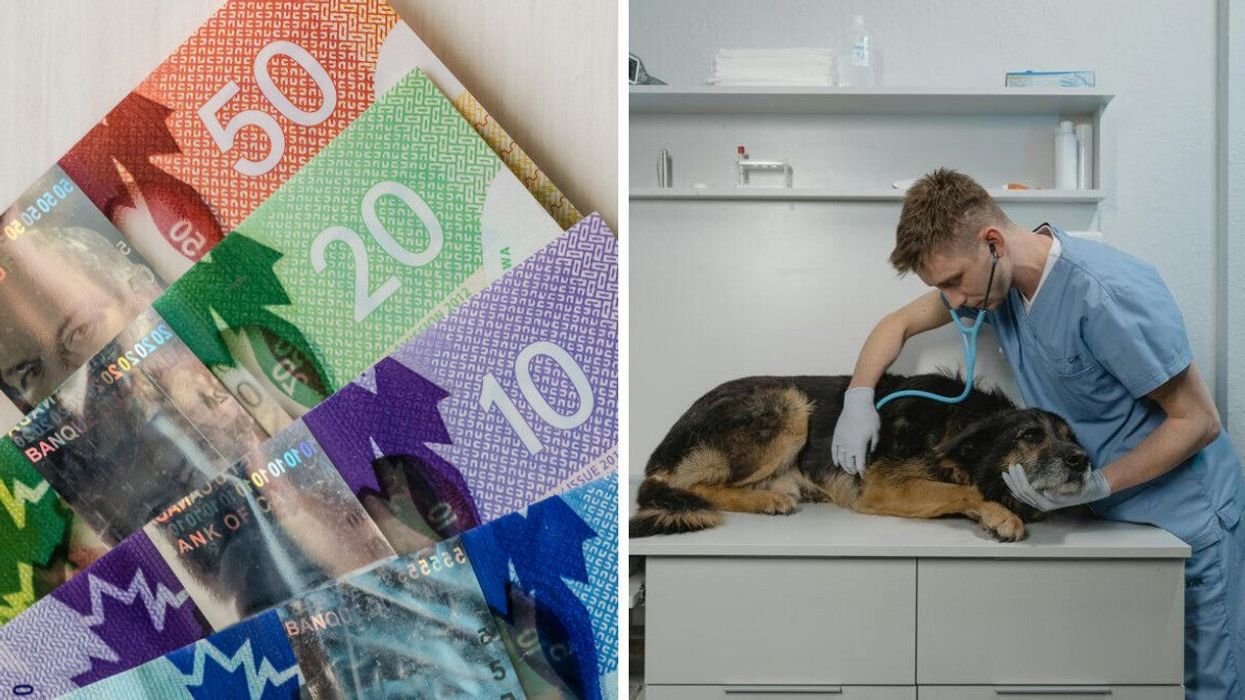TD has financial support for Canada's medical, dental and vet students
Depending on your program, you could get up to $100,000 upfront in your first year.

Canadian cash bills in sequence. Right: Veterinarian examining a sick dog
When you’ve worked as hard as Canada’s future medical doctors, dentists and veterinarians to earn your spot at university, the final hurdle to achieving your dreams is often money — and it can be really tough.
TD research has found that 30% of Canadian students might forgo professional graduate programs due to not receiving adequate financial support, 41% would worry about funding if accepted, and 36% view a student line of credit as important for funding their studies.
To support these students, TD has made changes to its Student Line of Credit, a product designed to bridge the financial gap for students entering medical, dental and veterinary programs and help them transition to professional life after graduation.
The biggest change is to credit limits:
- Medical and dental students can access up to $400,000, with up to $100,000 available in the first year (plus an additional $25,000 for eligible specialty dental programs).
- Veterinary students can access up to $250,000, with up to $62,500 available in the first year of study.
If you’ve been accepted and are enrolled in a medical, dental or veterinary program in Canada or the U.S., you could be eligible. And for Canadian students, if you’re studying at a Canadian institution, no co-signer is required to apply.
Students will continue to have access to their student line of credit during residency, benefit from two years of interest-only payments after graduation or the end of residency, and enjoy seamless access across TD platforms.
TD also supports you throughout your studies by connecting you with a TD Personal Banker, who understands your needs and can offer guidance every step of the way.
If your dream is to become a doctor, dentist, or veterinarian — keep moving forward with the TD Student Line of Credit.
This content is for general informational purposes only and does not constitute financial, investment, legal, tax or accounting advice.